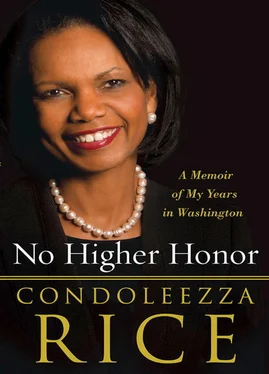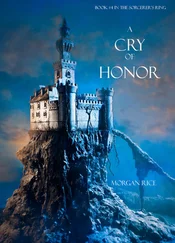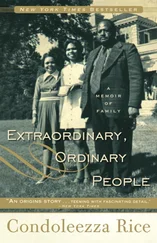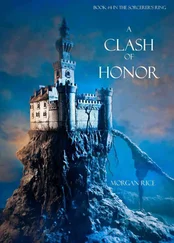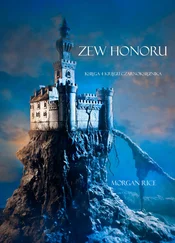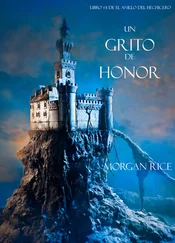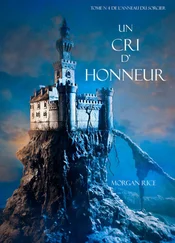Condoleezza Rice
NO HIGHER HONOR
A Memoir of My Years in Washington
To my parents

To the men and women in uniform
who volunteer to defend us on the front lines of liberty
and
To the diplomats and other civilians
who serve in hard places to promote a balance of power that favors freedom

PROLOGUE
THE RIDE TO FOGGY BOTTOM from my Watergate apartment was short. I had the good fortune to live four minutes from the office, and I’d been grateful many times after late nights and tense days that I didn’t have to commute.
On this, my last morning, I would have enjoyed a little more time to reflect. But I was quickly in the garage and then up the secretary’s private elevator to the seventh floor, entering the ornate paneled hallway lined with portraits of my predecessors.
I met my staff for one final time to thank them. They had a gift for me: they’d purchased my White House Cabinet Room chair. Each member of the President’s Cabinet sits in a large brown leather chair with a plaque on the back. I remember seeing “Secretary of State” for the first time and blushing at the thought that there had been a few others who had chairs like this before me. Did Thomas Jefferson have his own chair?
The ceremonial part of the meeting was short, though, because we had work to do. Tzipi Livni, Israel’s foreign minister, was coming to negotiate a memorandum of understanding on terms for the withdrawal of Israeli troops from Gaza. Turmoil in the Middle East had been there when I arrived, and it was going to be there when I left. But it was a fundamentally different place than when we had entered office in 2001. So much had happened to shape the contours of a new Middle East.
Toward the end of my day, I stopped to look at the four portraits of former secretaries that I’d kept near me. There was Thomas Jefferson—everyone kept Thomas Jefferson—and George Marshall, arguably the greatest secretary of state and, well, everybody kept George Marshall too.
But I’d asked to have Dean Acheson and William Seward moved up the queue. Acheson graced my outer office. When he left as secretary in 1953, he was hounded by the question “Who lost China?” with many blaming him for America’s inability to prevent Mao Zedong’s victory. Now he was remembered as one of the founding fathers of NATO.
And I kept William Seward. Why would anyone keep Seward’s portrait in a place of honor? Well, he bought Alaska. When the purchase was submitted for ratification in the Senate in 1867, Seward was excoriated: “Why would you pay the tsar of Russia seven million dollars for that icebox?” The decision quickly became known as “Seward’s folly.” One day I was talking with the then defense minister of Russia, Sergei Ivanov. He’d recently visited Alaska. “It’s so beautiful,” he said. “It reminds me of Russia.” “Sergei, it used to be Russia,” I quipped. We’re all glad that Seward bought Alaska.
The portraits were not just decoration; they were a reminder of something that I often told the press and others: Today’s headlines and history’s judgment are rarely the same. If you are too attentive to the former, you will most certainly not do the hard work of securing the latter.
In that vein, Dean Acheson and I shared more than having had the honor of serving in turbulent times; we shared a favorite quote from the English historian C. V. Wedgwood: “History is lived forwards but it is written in retrospect. We know the end before we consider the beginning and we can never wholly recapture what it was to know the beginning only.”
My, you’ve lived a lot of history , I thought. Then I headed down the hall to meet the Israeli foreign minister one last time.

INTRODUCTION
IT HAD BEEN a long two days. On Thursday morning, September 13, 2001, I stood looking at myself in the bathroom mirror. How could this have happened? Did we miss something? Keep your focus. Just get to the end of today, then tomorrow, then the next day. There will be a time to go back. Not now. You have work to do .
The time of reckoning—of facing the nation and myself about what had happened that day—would come in April 2004, when I testified before the 9/11 Commission. From the day the commission was announced, I knew that the administration would be asked the questions I’d asked myself. “How could you let it happen on your watch?” “Why didn’t you see that the system was blinking red?”
I was familiar with past commissions of this type and had even taught about the investigations into the Roosevelt administration’s failure to spot telltale signs of an impending attack on Pearl Harbor. But it’s one thing to read about it and quite another to be a central, maybe the central, character in the drama.
“Isn’t it a fact, Dr. Rice, that the August 6 PDB warned against possible attacks in this country?” Some forty-five minutes into my testimony, Richard Ben-Veniste, a seasoned prosecutor, abruptly pounced. He was referring to an intelligence report prepared for the President’s Daily Briefing (PDB) on August 6, 2001. The report had been developed only after the President himself had asked whether there was any information on a possible al Qaeda attack on the U.S. homeland. The very fact that he’d had to ask suggested that the intelligence community thought it an unlikely event.
The report summarized historical information that had been contained in old intelligence documents and quoted a media interview that had already been public. It also said that the intelligence community could not corroborate a 1998 report about Osama bin Laden’s desire to hijack a U.S. aircraft. None of us even remembered the PDB until May 2002, when CBS Evening News referred to its contents. I had talked to Bob Woodward and his colleague Dan Eggen of the Washington Post about it and had given a long White House press room briefing. The story had largely gone away.
The report, though, carried the eye-popping headline “Bin Ladin Determined To Strike in US.” Since it had been issued only a month shy of 9/11, it commanded the spotlight during the hearings. In my opening statement before the commission, I said that the briefing item had not been prompted by any specific threat information. It noted some suspicious activity that we went to great lengths to investigate. But the report was not a warning, which I made clear at other points during the hearing. That did not prevent the commissioners from asking probing—and at times hostile—questions about its contents. I had to be careful with what I said because the report itself was still classified at the time. In fact, there are no more closely held documents than PDBs, which are seen only by the President, the Vice President, and a handful of other officials. Because PDBs usually deal with the most sensitive and current intelligence reporting, they are rarely declassified. But that fact did not prevent Commissioner Ben-Veniste from asking me to reveal the title of the August 6 memorandum. I knew I had to answer the question.
Читать дальше
